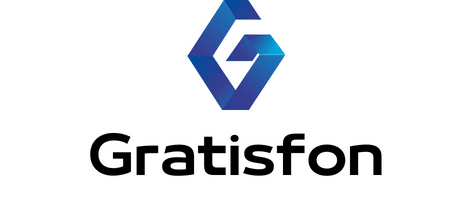How Can AI-Driven Smart Watches Aid in the Early Detection of Heart Conditions?

Artificial Intelligence (AI) has rapidly permeated various industries, revolutionizing the way we live and work. One mainstream application resides in healthcare, particularly in the advent of AI-driven smart watches. These devices have gained traction for their potential to detect heart conditions early, potentially saving millions of lives. This piece will delve into how AI-driven smart watches could be instrumental in early detection and management of heart conditions.
The Underlying Science of AI-driven Smart Watches
The premise of AI-driven smart watches in healthcare relies heavily on the intersection of technology and medical science. The smart watches are designed with sophisticated sensors and AI algorithms that can monitor and analyze a wide range of health metrics, including heart rate and rhythm.
A lire aussi : Reveal the hidden treasures of your crystals mystery box
The heart rate is a fundamental health metric that these watches monitor. Any significant deviation from the normal heart rate range of 60 to 100 beats per minute could be indicative of a heart condition. However, it is the ability of these devices to detect irregular heart rhythms, known as arrhythmias, that truly sets them apart. Arrhythmias are often the precursor to severe heart conditions including stroke and heart failure.
The AI algorithms in these watches analyze the data collected and alert the user of any abnormalities. This pushes the boundaries of preventive medicine, making it possible for individuals to take action before heart conditions become too severe to manage.
Dans le meme genre : What’s the Potential of Tidal Energy in UK’s Renewable Energy Mix?
AI in Predictive Health Analytics
The area where Artificial Intelligence truly shines in these devices is predictive health analytics. AI uses machine learning algorithms to analyze large volumes of data, identify patterns, and predict future outcomes, all in real time.
For example, AI can detect atrial fibrillation (AF), a common type of arrhythmia, in its early stages. AF increases the risk of stroke and heart failure, but if detected early, can be managed effectively with medication or surgical interventions. Yet, many people with AF are not aware they have it until they experience a stroke or other complications.
AI-driven smart watches can alert users of an irregular heart rhythm even before symptoms manifest, encouraging early diagnosis and treatment. This AI capability is not just about identifying potential heart conditions; it also aids in managing existing ones. For instance, for patients with heart conditions, these devices can help monitor their heart rate in real time, reminding them to take medication or seek medical help if their heart rate goes beyond a certain limit.
The Role of Data Privacy in AI-Driven Health Devices
Amid the numerous benefits of AI-driven smart watches lie a few potential concerns, of which data privacy is paramount. These watches collect massive amounts of sensitive health data, creating a potential target for cyberattacks.
However, manufacturers of these devices have implemented robust encryption algorithms and secure data storage systems to protect user data. In addition, they are subject to stringent data privacy regulations that mandate the anonymous storage of data and restrict unauthorized access.
While data privacy concerns are legitimate, the potential benefits of these devices in early detection and prevention of heart conditions far outweigh the risks. Moreover, users have the power to control what data they share and with whom, providing an additional layer of data protection.
The Future of AI-Driven Smart Watches in Heart Healthcare
The future of AI-driven smart watches in heart healthcare is promising. As AI and sensor technologies continue to evolve, these devices will become even more accurate and capable of detecting a wider range of heart conditions.
Already, researchers are exploring the possibility of using these devices to predict heart attacks, the leading cause of death globally. They are also studying how these devices could be used to monitor the recovery of heart patients post-surgery or during cardiac rehabilitation.
Moreover, the fusion of AI and wearable technology is paving the way for personalized medicine, where treatment plans are tailored to individual health metrics and lifestyle factors. By providing real-time, personalized health insights, AI-driven smart watches could revolutionize how we detect, manage and prevent heart conditions.
Challenges and Limitations of AI-Driven Smart Watches
Despite their potential, AI-driven smart watches also have their limitations. For one, while they can detect irregular heart rhythms, they cannot diagnose heart conditions – a task reserved for medical professionals. False positives, where the watch signals a heart condition when there isn’t one, can also occur, leading to unnecessary anxiety and medical consultations.
In addition, these watches may not be suited for everyone, especially those with certain skin conditions or allergies to the watch materials. There is also the issue of affordability, as not everyone can afford these high-end devices.
Nevertheless, as technology continues to advance and become more accessible, it is not far-fetched to envision a future where AI-driven smart watches are as common as regular watches, playing a pivotal role in the early detection and management of heart conditions.
Future Developments in AI-Driven Smart Watches
The potential for AI-driven smart watches in the context of heart healthcare is extensive and exciting. The technology behind these devices is rapidly evolving, with developers continually refining the AI algorithms used to analyze health data. As the technology advances, these devices are expected to become even more precise and reliable in detecting irregular heart rhythms and other indicators of heart conditions.
Investigations are underway to use these devices to predict heart attacks, the leading cause of death globally. If successful, this could be a significant breakthrough in preventive medicine, potentially saving millions of lives each year. There is also ongoing research into the use of smart watches to monitor the recovery process of heart patients following surgery or during cardiac rehabilitation.
Moreover, the integration of AI and wearable technology is heralding a new era in personalized medicine. By providing real-time, personalized health insights, AI-driven smart watches can help tailor treatment plans to the individual’s unique health metrics and lifestyle factors. As a result, we may soon see a shift from a one-size-fits-all approach to healthcare towards more personalized, patient-centric care.
Despite these promising developments, affordability remains a major barrier to the widespread adoption of these devices. However, as technology improves and becomes more accessible, AI-driven smart watches are expected to become more affordable, paving the way for their widespread use in heart healthcare.
Conclusion: AI-Driven Smart Watches – An Innovative Tool for Heart Healthcare
In conclusion, AI-driven smart watches represent a significant innovation in heart healthcare. By leveraging the power of AI and wearable technology, these devices can help detect heart conditions early, enabling timely intervention and potentially saving lives.
While the technology is still in its infancy, early results are promising. These devices have already demonstrated their ability to detect irregular heart rhythms and other potential signs of heart conditions, even before symptoms manifest. This ability to alert users of potential health issues in real time can significantly improve outcomes, particularly in the context of heart health.
The potential for AI-driven smart watches extends beyond early detection to include predictive health analytics and personalized medicine. As the technology matures, these devices may also be used to predict heart attacks and monitor patient recovery post-surgery.
However, challenges remain, including concerns around data privacy, false positives, and affordability. Overcoming these challenges will be key to ensuring the widespread adoption and success of these devices.
Despite these challenges, the potential benefits of AI-driven smart watches in heart healthcare far outweigh the risks. With further research and technological advancements, these devices could revolutionize how we detect, manage, and prevent heart conditions, heralding a new era in preventive medicine.
